Mark Lewis
Granite Code Models: A Family of Open Foundation Models for Code Intelligence
May 07, 2024



Abstract:Large Language Models (LLMs) trained on code are revolutionizing the software development process. Increasingly, code LLMs are being integrated into software development environments to improve the productivity of human programmers, and LLM-based agents are beginning to show promise for handling complex tasks autonomously. Realizing the full potential of code LLMs requires a wide range of capabilities, including code generation, fixing bugs, explaining and documenting code, maintaining repositories, and more. In this work, we introduce the Granite series of decoder-only code models for code generative tasks, trained with code written in 116 programming languages. The Granite Code models family consists of models ranging in size from 3 to 34 billion parameters, suitable for applications ranging from complex application modernization tasks to on-device memory-constrained use cases. Evaluation on a comprehensive set of tasks demonstrates that Granite Code models consistently reaches state-of-the-art performance among available open-source code LLMs. The Granite Code model family was optimized for enterprise software development workflows and performs well across a range of coding tasks (e.g. code generation, fixing and explanation), making it a versatile all around code model. We release all our Granite Code models under an Apache 2.0 license for both research and commercial use.
Efficient QUBO transformation for Higher Degree Pseudo Boolean Functions
Jul 24, 2021
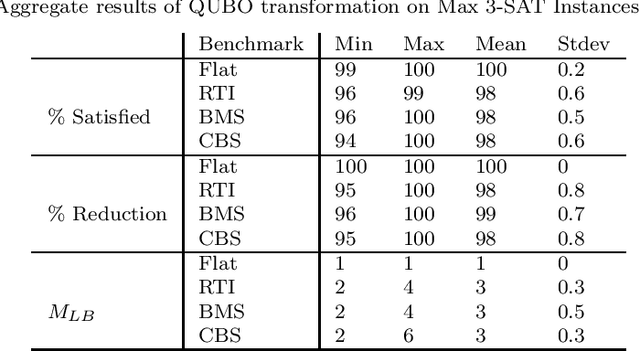
Abstract:Quadratic Unconstrained Binary Optimization (QUBO) is recognized as a unifying framework for modeling a wide range of problems. Problems can be solved with commercial solvers customized for solving QUBO and since QUBO have degree two, it is useful to have a method for transforming higher degree pseudo-Boolean problems to QUBO format. The standard transformation approach requires additional auxiliary variables supported by penalty terms for each higher degree term. This paper improves on the existing cubic-to-quadratic transformation approach by minimizing the number of additional variables as well as penalty coefficient. Extensive experimental testing on Max 3-SAT modeled as QUBO shows a near 100% reduction in the subproblem size used for minimization of the number of auxiliary variables.
QUBO transformation using Eigenvalue Decomposition
Jun 19, 2021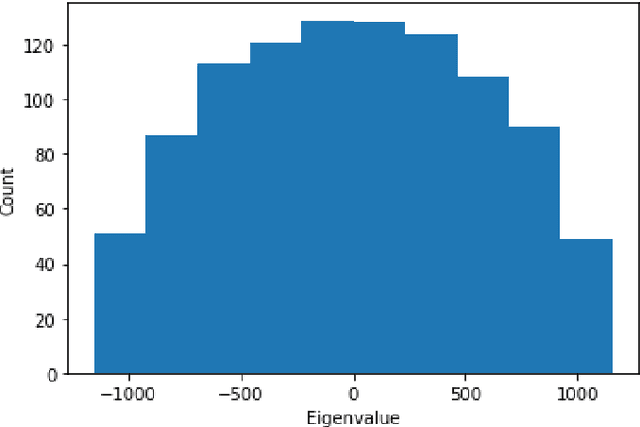
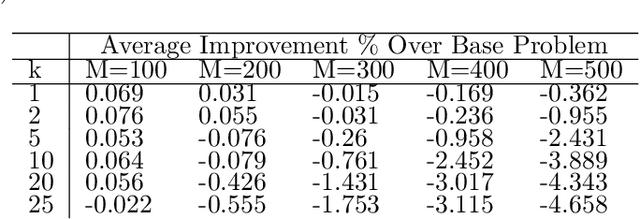

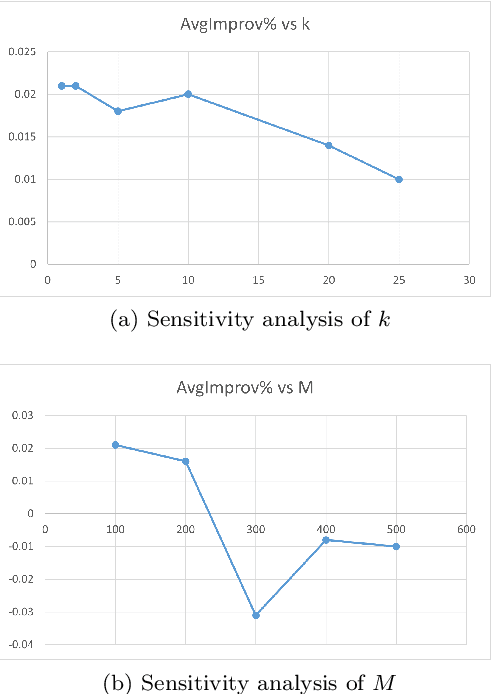
Abstract:Quadratic Unconstrained Binary Optimization (QUBO) is a general-purpose modeling framework for combinatorial optimization problems and is a requirement for quantum annealers. This paper utilizes the eigenvalue decomposition of the underlying Q matrix to alter and improve the search process by extracting the information from dominant eigenvalues and eigenvectors to implicitly guide the search towards promising areas of the solution landscape. Computational results on benchmark datasets illustrate the efficacy of our routine demonstrating significant performance improvements on problems with dominant eigenvalues.
Constraint Programming to Discover One-Flip Local Optima of Quadratic Unconstrained Binary Optimization Problems
Apr 04, 2021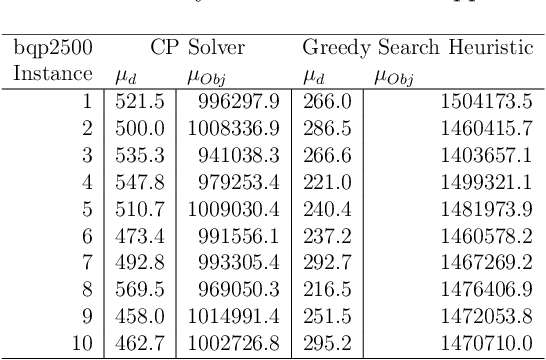
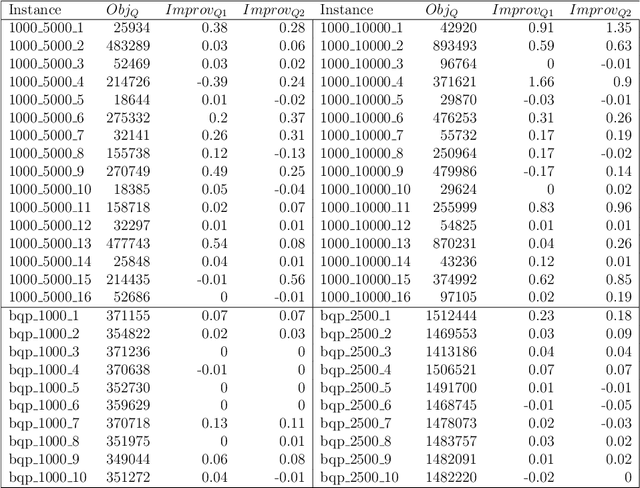
Abstract:The broad applicability of Quadratic Unconstrained Binary Optimization (QUBO) constitutes a general-purpose modeling framework for combinatorial optimization problems and are a required format for gate array and quantum annealing computers. QUBO annealers as well as other solution approaches benefit from starting with a diverse set of solutions with local optimality an additional benefit. This paper presents a new method for generating a set of one-flip local optima leveraging constraint programming. Further, as demonstrated in experimental testing, analysis of the solution set allows the generation of soft constraints to help guide the optimization process.
Goal Seeking Quadratic Unconstrained Binary Optimization
Mar 24, 2021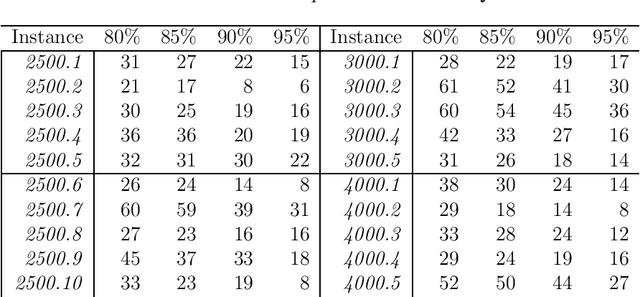

Abstract:The Quadratic Unconstrained Binary Optimization (QUBO) modeling and solution framework is required for quantum and digital annealers whose goal is the optimization of a well defined metric, the objective function. However, diverse suboptimal solutions may be preferred over harder to implement strict optimal ones. In addition, the decision-maker usually has insights that are not always efficiently translated into the optimization model, such as acceptable target, interval or range values. Multi-criteria decision making is an example of involving the user in the decision process. In this paper, we present two variants of goal-seeking QUBO that minimize the deviation from the goal through a tabu-search based greedy one-flip heuristic. Experimental results illustrate the efficacy of the proposed approach over Constraint Programming for quickly finding a satisficing set of solutions.
Robust Optimization of Unconstrained Binary Quadratic Problems
Sep 21, 2017



Abstract:In this paper we focus on the unconstrained binary quadratic optimization model, maximize x^t Qx, x binary, and consider the problem of identifying optimal solutions that are robust with respect to perturbations in the Q matrix.. We are motivated to find robust, or stable, solutions because of the uncertainty inherent in the big data origins of Q and limitations in computer numerical precision, particularly in a new class of quantum annealing computers. Experimental design techniques are used to generate a diverse subset of possible scenarios, from which robust solutions are identified. An illustrative example with practical application to business decision making is examined. The approach presented also generates a surface response equation which is used to estimate upper bounds in constant time for Q instantiations within the scenario extremes. In addition, a theoretical framework for the robustness of individual x_i variables is considered by examining the range of Q values over which the x_i are predetermined.
Quadratic Unconstrained Binary Optimization Problem Preprocessing: Theory and Empirical Analysis
May 27, 2017
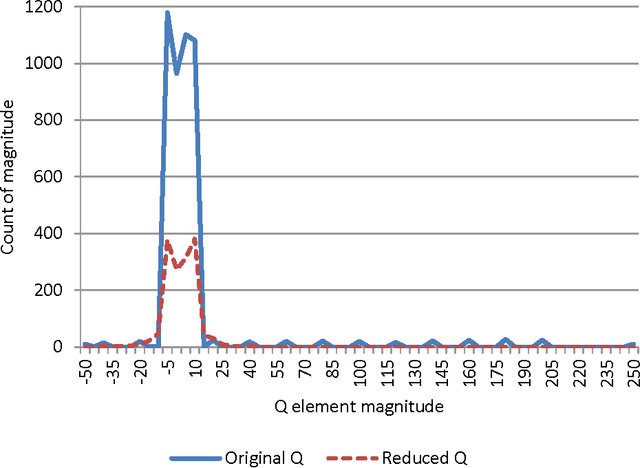
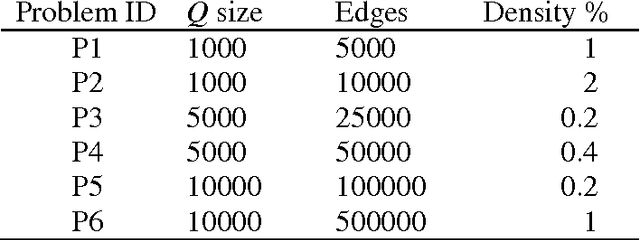
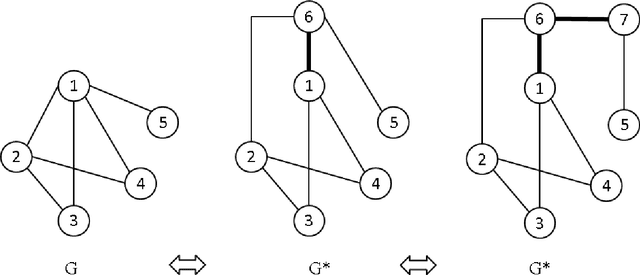
Abstract:The Quadratic Unconstrained Binary Optimization problem (QUBO) has become a unifying model for representing a wide range of combinatorial optimization problems, and for linking a variety of disciplines that face these problems. A new class of quantum annealing computer that maps QUBO onto a physical qubit network structure with specific size and edge density restrictions is generating a growing interest in ways to transform the underlying QUBO structure into an equivalent graph having fewer nodes and edges. In this paper we present rules for reducing the size of the QUBO matrix by identifying variables whose value at optimality can be predetermined. We verify that the reductions improve both solution quality and time to solution and, in the case of metaheuristic methods where optimal solutions cannot be guaranteed, the quality of solutions obtained within reasonable time limits. We discuss the general QUBO structural characteristics that can take advantage of these reduction techniques and perform careful experimental design and analysis to identify and quantify the specific characteristics most affecting reduction. The rules make it possible to dramatically improve solution times on a new set of problems using both the exact Cplex solver and a tabu search metaheuristic.
Logical and Inequality Implications for Reducing the Size and Complexity of Quadratic Unconstrained Binary Optimization Problems
May 26, 2017
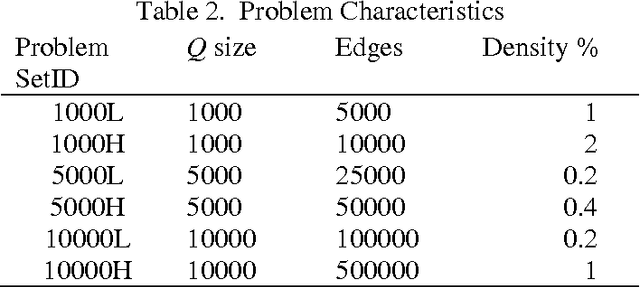
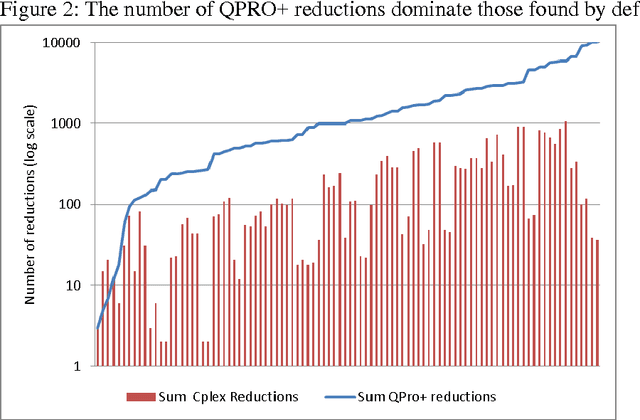
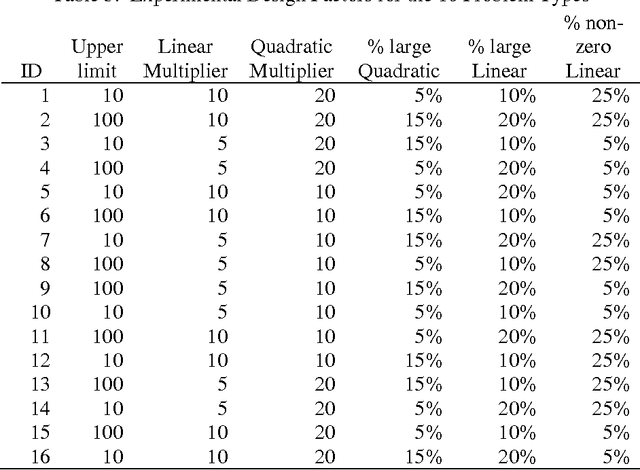
Abstract:The quadratic unconstrained binary optimization (QUBO) problem arises in diverse optimization applications ranging from Ising spin problems to classical problems in graph theory and binary discrete optimization. The use of preprocessing to transform the graph representing the QUBO problem into a smaller equivalent graph is important for improving solution quality and time for both exact and metaheuristic algorithms and is a step towards mapping large scale QUBO to hardware graphs used in quantum annealing computers. In an earlier paper (Lewis and Glover, 2016) a set of rules was introduced that achieved significant QUBO reductions as verified through computational testing. Here this work is extended with additional rules that provide further reductions that succeed in exactly solving 10% of the benchmark QUBO problems. An algorithm and associated data structures to efficiently implement the entire set of rules is detailed and computational experiments are reported that demonstrate their efficacy.
 Add to Chrome
Add to Chrome Add to Firefox
Add to Firefox Add to Edge
Add to Edge